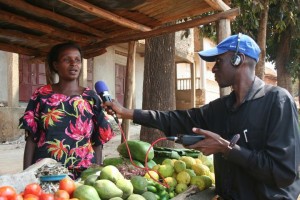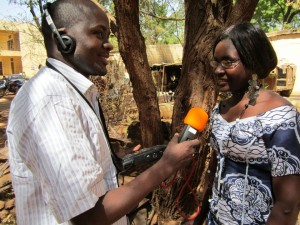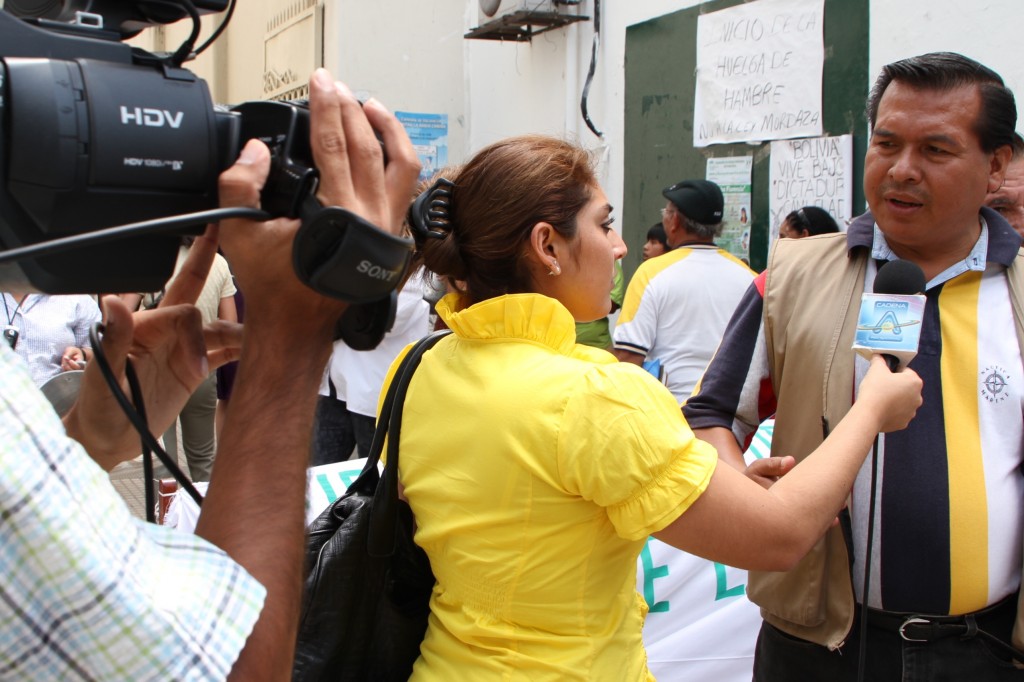Search Results for Tag: vox pop
Different approaches to web video vox pops
The vox pop is one of those classic devices in a journalist’s storytelling toolbox. It’s a snapshot of public opinion about a given topic, and more often than not, a controversial one.
But when you take the vox pop online and use it within a multimedia story, or produce web video content, there’s the opportunity to be creative and offer more than just producing a simple series of talking head shots.
![]() read more
read more
Teaching TV vox pops in Vietnam
A good interview should be informative, authentic, credible and sometimes even surprising. In the past two weeks, the participants in our workshop ‘Advanced Interview Training’ were able to discover the special benefits of this journalistic format.
Together with my colleague Uli Köhler, I am training journalists in the Vietnamese capital Hanoi. Our 15 trainees work for Vietnam Television (VTV). Most of them are reporters in Hanoi, but we’ve also got the VTV correspondents to Russia and to China in our group. All of our participants are keen to learn more about conducting interviews and recording vox pops.
As Uli and I will leave Vietnam in a couple of days, the trainees are now working on their final productions. Their topic is ‘same-sex marriage in Vietnam’. They chose this topic themselves after an hour-long discussion.
![]() read more
read more
Vox Pop (part II): How to find a good topic and ask the right question

In the first part of our series about the vox pop, we discussed the pro’s and con’s of the vox pop as a journalistic format. Now, let’s get down to the actual business of making a vox pop.
Before you decide to produce a vox pop, you should make sure that the topic lends itself to this format. The spectrum of possible topics ranges from politics, business, sports and religion to social issues and everyday problems.
The best topics for vox pops are controversial issues that move the people. With these kinds of issues, you can be fairly sure that the answers you get from the people will be varied, interesting and usable. But other topics, such as consumer behavior, recreational activities, etc. are also possible.
What’s important is that the issue must be topical and of general interest. If only a minority of your listeners is interested in the topic of the vox pop, you run the risk that the majority of your audience will switch off. And it is very difficult to win back lost listeners.
![]() read more
read more
Vox Pop: What’s good and bad about this journalistic format?
 Radio and TV programs are not an end in themselves – journalists don’t produce them for their own self-fulfillment, but to meet the needs of their audience. Journalists write news bulletins and reports to meet the audience’s information needs and they produce music programs to entertain their audience.
Radio and TV programs are not an end in themselves – journalists don’t produce them for their own self-fulfillment, but to meet the needs of their audience. Journalists write news bulletins and reports to meet the audience’s information needs and they produce music programs to entertain their audience.
All of these journalistic formats have one thing in common: they are produced and presented by professionals. And the other voices that appear in the sound clips are most often those of politicians, experts or high-ranking people.
The average citizen hardly ever appears on the air – unless the program uses vox pop. This expression is short for the Latin term, “vox populi” and means “the voice of the people”. When this “voice of the people” is heard, the audience knows that “normal people”, very much like themselves, also have a place in broadcasting. They feel appreciated and taken seriously by the radio or TV station. And this in turn strengthens the audience’s “loyalty” to the station.
For a “vox pop”, journalists ask a number of randomly selected people the same question, collect the answers and string them together. The different answers create an idea of the variety of opinions existing within the population.
Journalists usually conduct these “one-question interviews” in public places where you can find many different kinds of people.
![]() read more
read more






Feedback